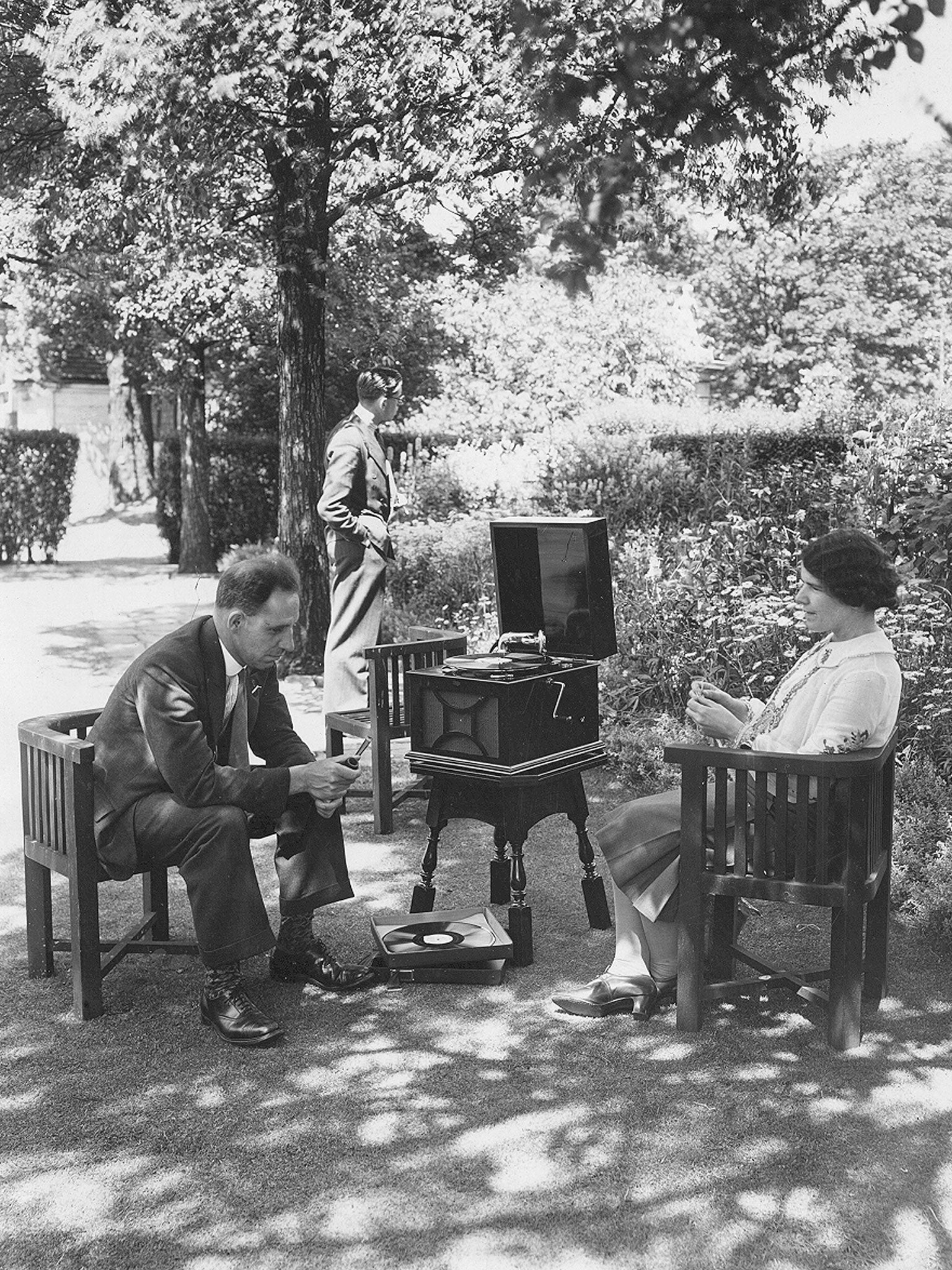Rhodri Marsden's Interesting Objects: The Talking Books machine
These were no ordinary books – they came as a hefty package of 10 long-playing discs

Eighty years ago this week, the UK's first Talking Book library opened for membership. To join, you either had to be registered as blind or "give satisfactory evidence of [your] inability to read ordinary books". And these were no ordinary books. They came as a hefty package of 10 long-playing discs, with an initial choice of three titles: Agatha Christie's The Murder of Roger Ackroyd, Joseph Conrad's Typhoon, or The Gospel According to St John. "The smallest library, I should think, in the world," said its founder, Captain Ian Fraser.
Fraser had been blinded during the First World War, and on returning to Britain became actively involved in St Dunstan's, a charity dedicated to the rehabilitation of servicemen who'd lost their sight. He had the idea for Talking Books while recording himself reciting poetry on to wax cylinders, but it took a while for technology to make his idea feasible. While record labels were making unsatisfactory attempts to produce LPs containing music, it turned out to be the perfect medium for Talking Books.
Members could buy a Talking Books machine from St Dunstan's at cost: either a wind-up version (pictured above), an electric model, or one equipped with headphones. They weren't cheap: the most expensive model cost £6 10s in 1935 (around £400 today), with veterans getting a £1 subsidy. But the first two years saw the library welcome over 1,000 happy members. "If you sit down quietly with a reading machine," wrote Fraser, "you will get just as much pleasure out of it as if a really competent reader is personally at your service."
The library was funded entirely by private donations. A few months after its launch, Fraser contacted the most generous benefactor, Lord Nuffield. "The benefit of this development in the happiness… of a blind community," he wrote, "is beyond estimation."
Talking Books are available from RNIB, rnib.org.uk
Subscribe to Independent Premium to bookmark this article
Want to bookmark your favourite articles and stories to read or reference later? Start your Independent Premium subscription today.

Join our commenting forum
Join thought-provoking conversations, follow other Independent readers and see their replies